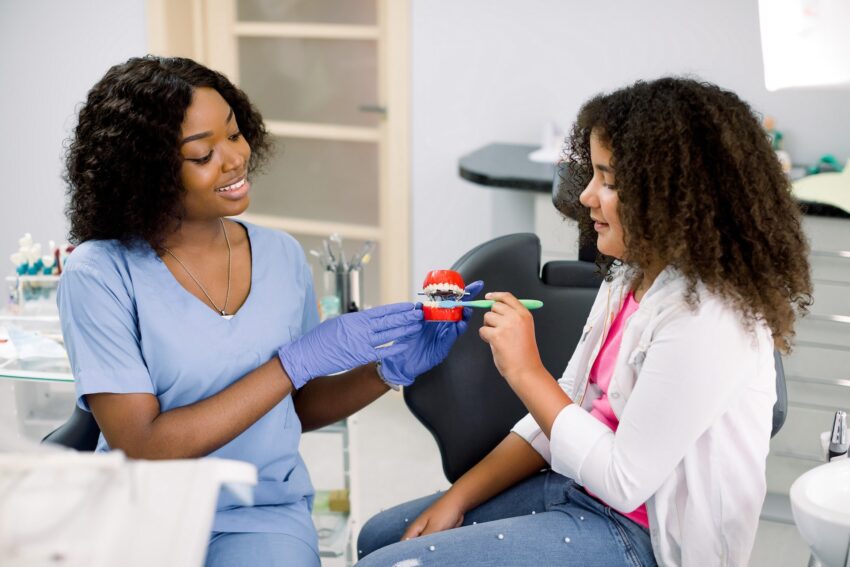Oral health plays a critical role in overall health. Establishing healthy habits early on prevents infection and disease down the road.
Kids have unique dental needs. From baby teeth to teenage years, pediatric dentists have the expertise to care for your child’s oral hygiene. Learn more about pediatric dentists and how they can benefit your family.
Qualifications
Millions of children avoid dental exams because they are afraid of the experience. These children need skilled care from professionals who understand their unique needs. Pediatric dentists are specially trained to work with kids, and they are professionals who can ease a child’s anxiety and establish lifelong oral health habits.
To become a pediatric dentist, candidates must first earn a bachelor’s degree. Aspiring pedodontists should focus on subjects that will help prepare them for the Dental Admission Test (DAT). They must then graduate from an accredited dental school with either a Doctor of Dental Medicine or a Doctor of Dental Surgery degree.
After dental school, aspiring pedodontists complete two years of specialty training for working with kids and young adults. Only then can they be certified by the American Board of Pediatric Dentistry and display the Diplomate ABPD title. This certification is essential for a pediatric dentist to be successful in their career.
Services
Good dental care should start early, so it is recommended that children see a pediatric dentist after their first baby tooth erupts or by age one. This will ensure that their teeth and gums are developing normally. They will also be able to catch any problems like thumb-sucking, pacifier dependency, or teeth grinding, which may lead to bigger issues down the road.
Pediatric dentist Albany have extensive training and experience in caring for children’s mouths, teeth, and gums throughout each stage of childhood. They also have training in behavior management, which helps them connect with children and make them feel comfortable during treatment.
Because kids grow and change rapidly, their oral health must be monitored frequently to prevent serious problems. A pediatric dentist can help them with this and provide education about proper oral hygiene and nutrition. This will help set a foundation for healthy habits they will carry into adulthood.
Prevention and Education
Children have very different needs than adults regarding dental care and hygiene, as they are still growing and developing their teeth and mouths. Pediatric dentists are trained to provide children with the proper oral care and treatment they need to have healthy teeth and gums.
This includes teaching them proper brushing and flossing techniques and guiding diet and nutrition. Pediatric dentists also know how to manage a child’s behavior during a dental appointment, a specialized skill set not all dentists have.
Children also need preventative services like fluoride treatments, cleanings and sealants to protect their growing teeth from cavities. A pediatric dentist can also help kids avoid painful conditions like gum disease by removing plaque below the gum line before it builds up. These preventative services are essential to helping children have healthy teeth throughout their childhood and beyond.
Treatments
Children need consistent dental care to develop healthy habits and avoid future problems like tooth decay and gum disease. Pediatric dentists have advanced training and experience working with infants, teens, and kids with special health needs to provide the best oral care.
Regular teeth cleanings, fluoride treatments, and nutrition counseling are common services a pediatric dentist offers. They are also skilled in helping kids break bad habits like thumb-sucking and pacifier dependency.
In addition to regular oral exams and cleanings, a pediatric dentist can spot potential problems like malocclusion. They may also recommend orthodontic procedures to correct these issues. Since kids have different temperaments than adults, they also need a unique approach to comfort them during operations. Pediatric dental offices often have a fun environment that helps to ease kids’ fears and anxieties. They also use developmentally appropriate language to explain oral health topics.

